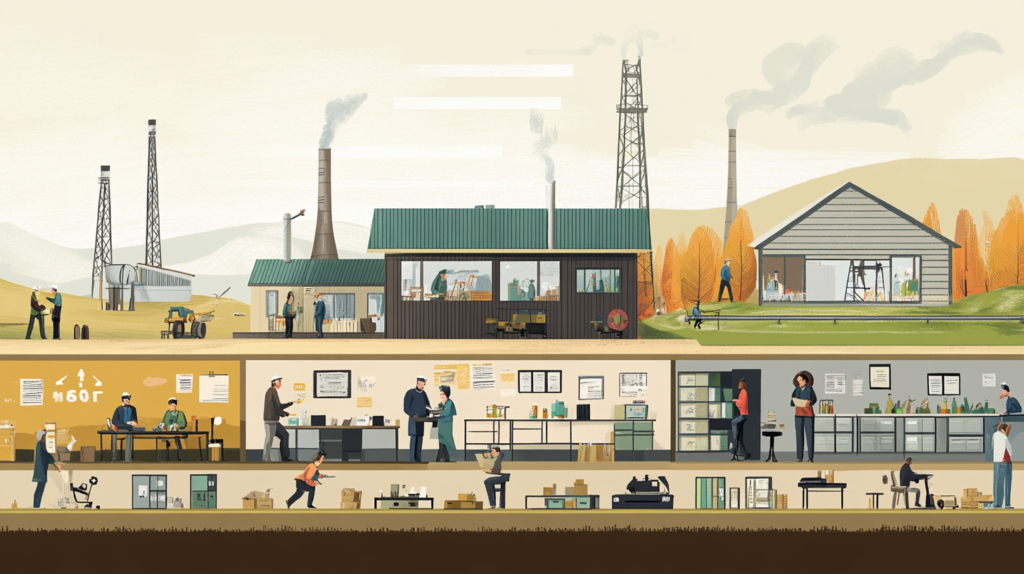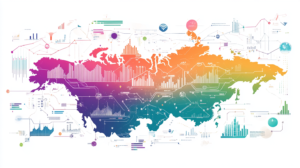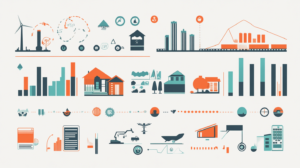What’s the Average Salary in Russia? Regional and Industry Breakdown

Understanding the average salary in Russia is crucial for anyone looking to work, invest, or simply understand the country’s economy. Russia, with its diverse regions and industries, presents a complex picture of wage distribution. This article explores various aspects of Russian salaries, including average incomes by sector, regional differences, and labor market trends. By delving into these factors, you’ll gain a clearer picture of what to expect when it comes to earnings in Russia.
Table of Contents
- Average Salary in Russia: An Overview
- Regional Salary Differences in Russia
- Average Wages by Industry in Russia
- Cost of Living vs. Salaries in Russia
- Income Distribution in Russia
- Russian Labor Market Trends
- Russia’s Minimum Wage vs. Average Wage
- Deskcove: Your Partner in Understanding Salaries
- Frequently Asked Questions
Average Salary in Russia: An Overview
Current Average Salary Figures
The average salary in Russia fluctuates depending on various factors, including the region, industry, and overall economic conditions. As of recent statistics, the average salary in Russia is approximately 55,000 RUB (about 750 USD) per month. However, it’s crucial to note that these numbers can vary significantly based on job roles and individual qualifications. For instance, professionals in the IT sector or finance often earn salaries higher than the average salary in Russia, compared to those working in manufacturing or agriculture.
Historical Salary Trends
Over the past decade, the average salary in Russia has experienced steady growth, despite fluctuations influenced by economic sanctions, inflation, and global oil prices. In recent years, government measures have included increasing the minimum wage, which has contributed to an overall rise in the average salary in Russia. However, it still lags behind many European countries in terms of earning potential.

Regional Salary Differences in Russia
Moscow vs. Other Regions
When discussing the average salary in Russia, regional disparities are a crucial factor to consider. In Moscow, the capital and financial hub, the average salary in Russia can exceed 100,000 RUB (around 1,350 USD) per month. This figure stands in stark contrast to other regions, where the average salary in Russia may be closer to 40,000 RUB (around 540 USD). The disparity is mainly due to Moscow’s concentration of high-paying industries, such as finance, technology, and international business.
Rural vs. Urban Income Levels
Income disparities also exist between urban and rural areas in Russia. While urban centers like St. Petersburg and Novosibirsk offer higher wages, rural regions often see a lower average salary in Russia due to limited job availability and a focus on agriculture. The rural average salary in Russia can be as low as 25,000 RUB (340 USD) per month, highlighting the economic divide within the country.
Average Wages by Industry in Russia
High-Paying Sectors
Certain industries in Russia offer higher salaries due to demand and the nature of work. For instance, the oil and gas sector is known for its lucrative wages, with some professionals earning well above the national average. Similarly, the technology and finance sectors provide competitive salaries, attracting talent from within and outside Russia.
Low-Paying Sectors
On the other hand, sectors like agriculture, retail, and education often provide lower wages. Teachers, for example, earn an average of 35,000 RUB (470 USD) per month, highlighting the income gap between different professional fields. This disparity can impact career choices and overall job satisfaction among Russian workers.
Cost of Living vs. Salaries in Russia
Urban Cost of Living
The cost of living in Russia varies greatly between cities. In Moscow, living expenses are significantly higher than in other parts of the country. A higher average salary in Russia in these urban areas is often offset by the increased cost of housing, utilities, and transportation. Therefore, while the average salary in Russia might seem substantial, disposable income can still be limited in larger cities.
Affordability in Rural Areas
Conversely, rural areas in Russia offer a much lower cost of living, which aligns with the generally lower average salary in Russia. Essentials like food and housing are more affordable, making a lower salary more manageable. This balance between the average salary in Russia and expenses can influence individuals’ decisions on whether to relocate or remain in certain areas of the country.
Income Distribution in Russia
Income Inequality
Income distribution in Russia reveals significant inequality, with a considerable gap between the highest and lowest earners. The wealthiest individuals, often in top corporate or government positions, earn many times more than the national average. Meanwhile, a large portion of the population earns close to the minimum wage, highlighting income disparities within the nation.
Middle-Class Earnings
The middle class in Russia typically earns between 50,000 RUB (670 USD) and 150,000 RUB (2,000 USD) per month. These wages allow for a comfortable lifestyle, including homeownership, travel, and access to quality healthcare. However, the size and stability of the middle class are influenced by economic conditions and labor market trends.
Russian Labor Market Trends
Growing Sectors
In recent years, the Russian labor market has seen growth in sectors like information technology, e-commerce, and healthcare. These industries are driving demand for skilled professionals, resulting in competitive salaries and a growing job market. The increased focus on technological innovation suggests a positive outlook for high-paying tech jobs in the future.
Impact of Global Events
Global economic factors, including sanctions and changes in oil prices, have historically impacted the Russian labor market. While some sectors experience downturns, others, such as agriculture and domestic manufacturing, may see growth due to shifts in economic policy and global demand.
Russia’s Minimum Wage vs. Average Wage
Current Minimum Wage
As of the latest government data, the minimum wage in Russia is set at approximately 16,242 RUB (220 USD) per month. This figure represents a baseline for income in the country, primarily affecting those in entry-level or unskilled positions. Despite periodic increases, the minimum wage remains significantly lower than the national average salary.
Closing the Gap
The Russian government has introduced policies aimed at reducing the wage gap and improving income levels across various sectors. These initiatives include raising the minimum wage and promoting employment in higher-paying industries. However, achieving parity between the minimum and average salaries remains an ongoing challenge.

Deskcove: Your Partner in Understanding Salaries
Deskcove is a valuable resource for professionals seeking insights into the labor market, salary benchmarks, and career planning. By providing data-driven analysis and industry trends, Deskcove helps individuals make informed decisions about their careers in Russia. Whether you’re considering a job change or exploring new markets, Deskcove is here to guide you every step of the way.
Frequently Asked Questions
What is the average salary in Russia?
The average monthly salary in Russia is approximately 55,000 RUB (750 USD), though this varies based on factors like industry, location, and qualifications.
How does the cost of living in Russia affect salaries?
In cities like Moscow, high living costs can offset higher wages, while in rural areas, lower costs make smaller salaries more manageable.
Which industries in Russia offer the highest salaries?
Industries such as oil and gas, finance, and technology typically offer higher-than-average wages in Russia due to their specialized skill requirements and economic importance.
